The Responsibility of Photographers - Travel Photography in Fiji
Photography carries with it a great responsibility that isn't often spoken of. Most of us think of a photo of truth. Of a simple documentation of what was happening. But what does that mean when you see this photo: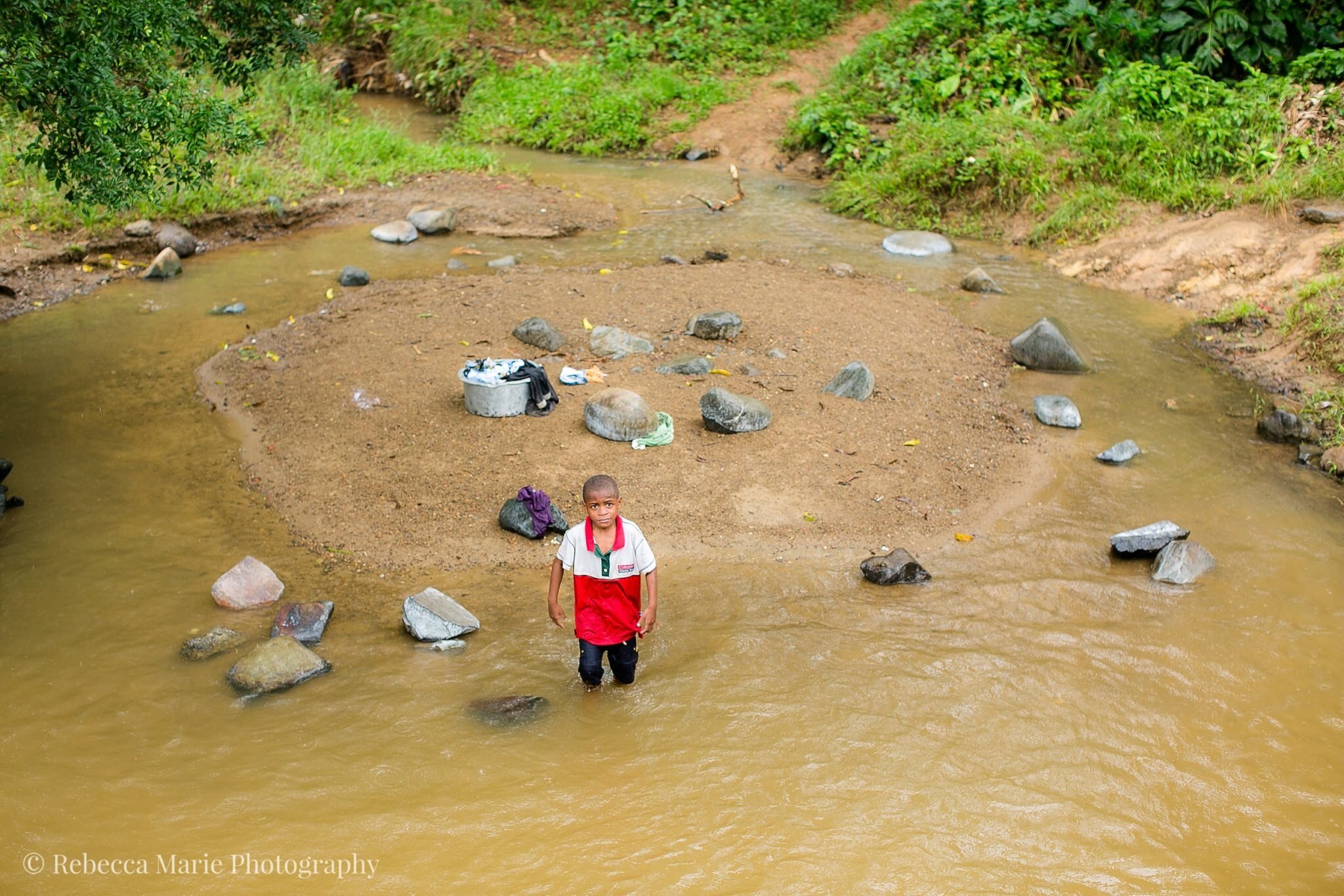 And this photo:
And this photo: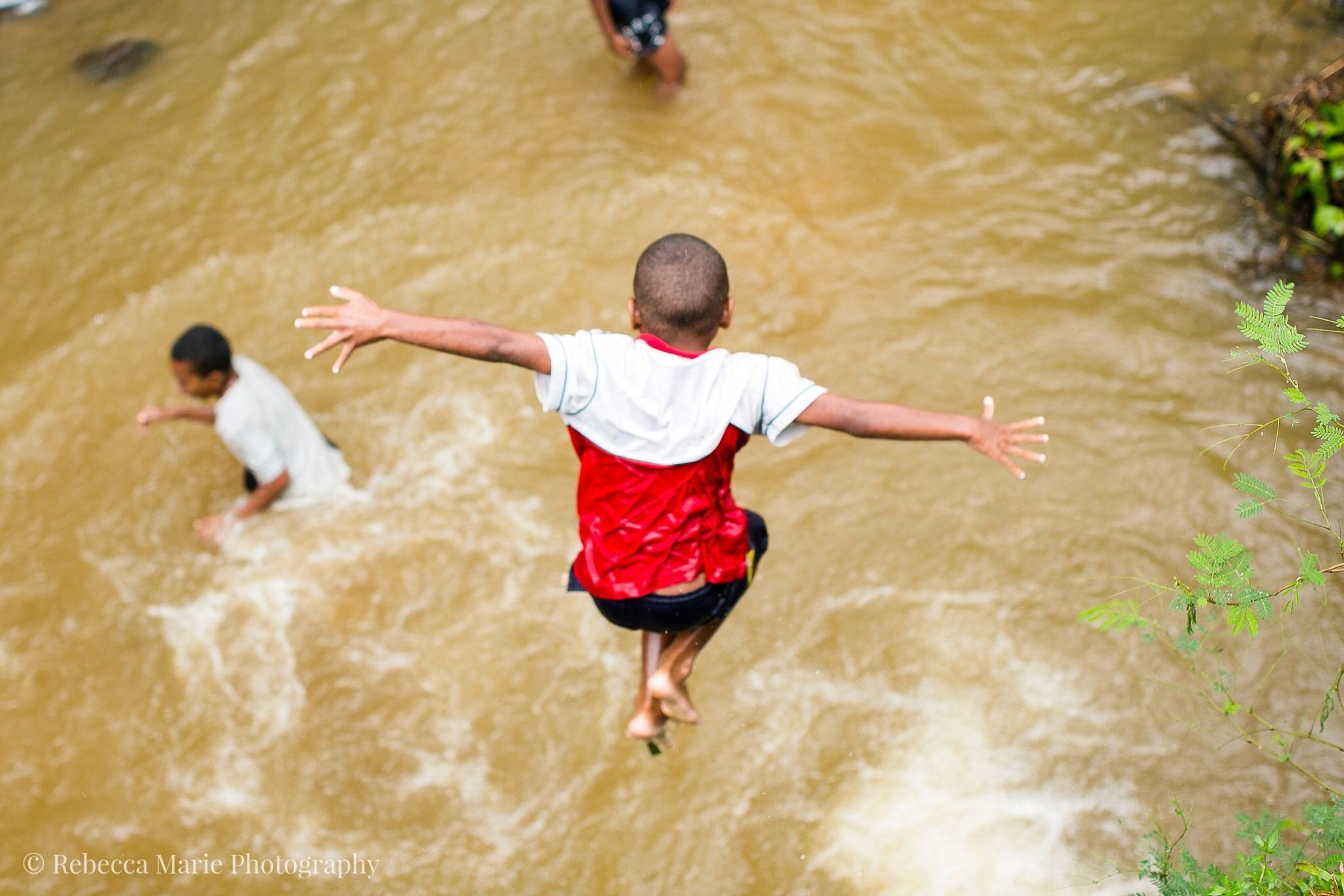 That's the same little boy playing in the laundry washing, dinner water gathering turned waterpark river of Fiji. There was a group of them in fact (as you can see hints of in the 2nd photo). But what if I only showed you the first? What would you think? My guess is your heart would break a little, just like mine did. And it broke even though I witnessed the full story firsthand! I knew there was excitement on his face moments later. But without photo #2 maybe you would think he was an extremely sad kid. You'd think that he was alone, left to do his family's laundry in the river. I knew moments later he was jumping off the side of the hill into that water, just like any of us at that age would do. Not a care in the world, but to play with his friends in the rain.
That's the same little boy playing in the laundry washing, dinner water gathering turned waterpark river of Fiji. There was a group of them in fact (as you can see hints of in the 2nd photo). But what if I only showed you the first? What would you think? My guess is your heart would break a little, just like mine did. And it broke even though I witnessed the full story firsthand! I knew there was excitement on his face moments later. But without photo #2 maybe you would think he was an extremely sad kid. You'd think that he was alone, left to do his family's laundry in the river. I knew moments later he was jumping off the side of the hill into that water, just like any of us at that age would do. Not a care in the world, but to play with his friends in the rain.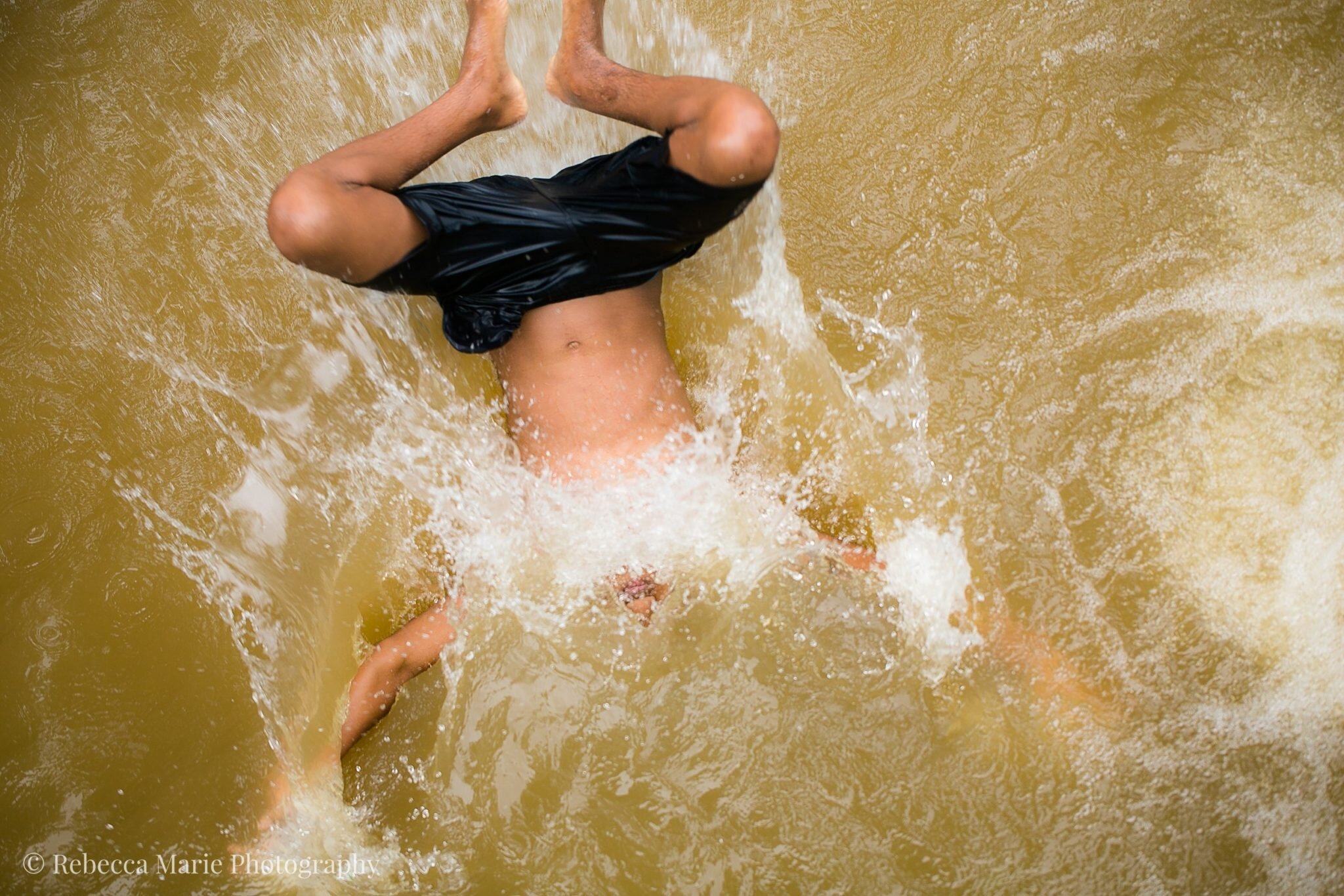 So where does that leave us as photographers? Considering this trip was working in tandem with a non-profit, should Give Clean Water use photo #1 or #2 for their marketing? Would #1 garnish more donations than #2? Photojournalists most often are aware of this dichotomy because they have a strict code of ethics. Their code has a list of about 16 perimeters, the top two of which are:
So where does that leave us as photographers? Considering this trip was working in tandem with a non-profit, should Give Clean Water use photo #1 or #2 for their marketing? Would #1 garnish more donations than #2? Photojournalists most often are aware of this dichotomy because they have a strict code of ethics. Their code has a list of about 16 perimeters, the top two of which are:
- Be accurate and comprehensive in the representation of subjects.
- Resist being manipulated by staged photo opportunities.
All of the above photos are completely candid so I've abided by rule #2. But rule #1 - accurate. What does "accurate" mean? Is the first photo or the second more accurate? Both happened. Both follow rule #2. So where does that leave us?Photography is not truth. Every time I push down the shutter button I have made numerous conscious (and unconscious) decisions about what to include in the frame and what not to include. About how to capture the light and what that says about what kind of day it was. Very few couples dream of a dreary, overcast wedding day, so if we wake up on the morning of their big day and Mother Nature has brought us clouds, you can bet I'm crafting and framing images that capture a more joyous light than reality because the feeling of the day - everyone's emotions and excitement - match the feeling of sunlight, even if that's not what Mother Nature gave us. So, is that accurate? My families sure think so. The weatherman might disagree.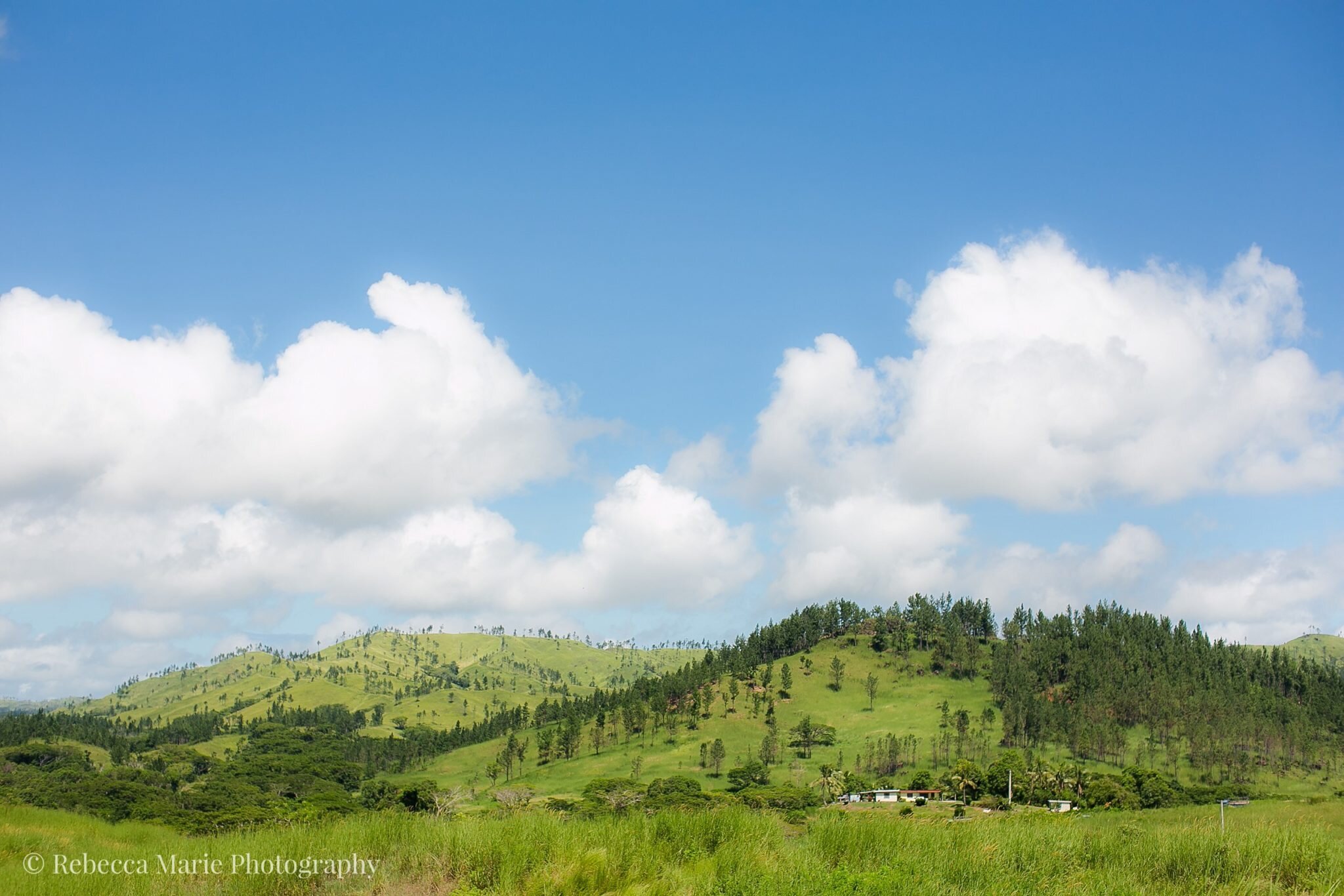
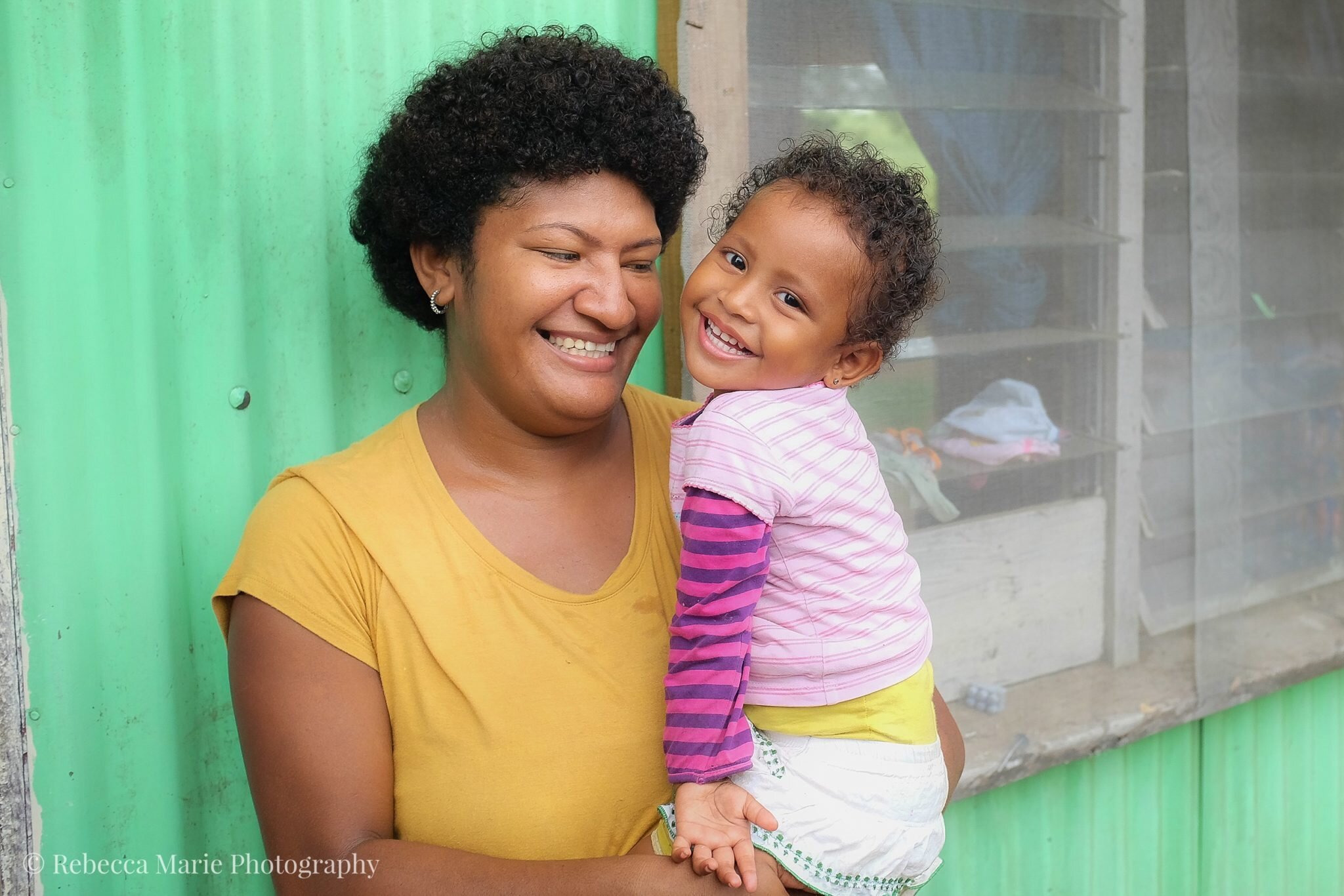
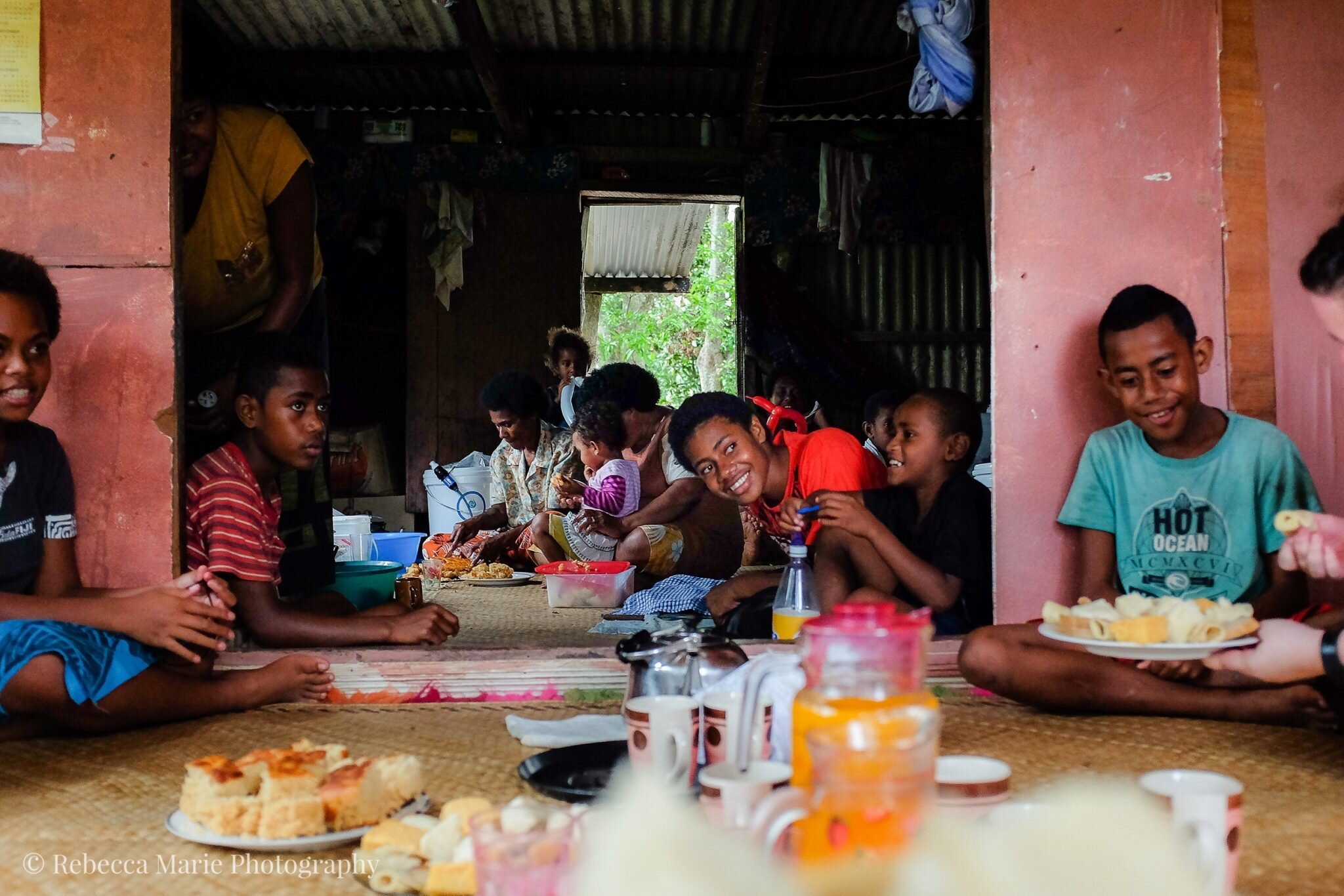 Compared to American standards, the homes in Fiji are quite simple. Most families share one room with minimal furniture (1 bed for mom & dad, 1 bed for siblings often times shared with grandma). The soft drops of tropical rain can turn to a loud roar as it hits the tin roofs of these simple buildings. The kitchen is an open fire stove and a microwave along one wall and everyone sits on the handwoven mats after leaving their shoes outside to share in a meal. At the same time, the sunlight that journeys through the slatted windows is nothing short of magical. Communities easily come together to share in a meal. Not knowing your neighbor is absolutely unheard of. We shared water filters with newlyweds who were just as giddy as the couples I know in Chicago. Laughter surrounded us every single day in every single home regardless of the fact that drinking water was being pulled from the same river where the farm animals spent their bathroom time. So what is accurate?
Compared to American standards, the homes in Fiji are quite simple. Most families share one room with minimal furniture (1 bed for mom & dad, 1 bed for siblings often times shared with grandma). The soft drops of tropical rain can turn to a loud roar as it hits the tin roofs of these simple buildings. The kitchen is an open fire stove and a microwave along one wall and everyone sits on the handwoven mats after leaving their shoes outside to share in a meal. At the same time, the sunlight that journeys through the slatted windows is nothing short of magical. Communities easily come together to share in a meal. Not knowing your neighbor is absolutely unheard of. We shared water filters with newlyweds who were just as giddy as the couples I know in Chicago. Laughter surrounded us every single day in every single home regardless of the fact that drinking water was being pulled from the same river where the farm animals spent their bathroom time. So what is accurate?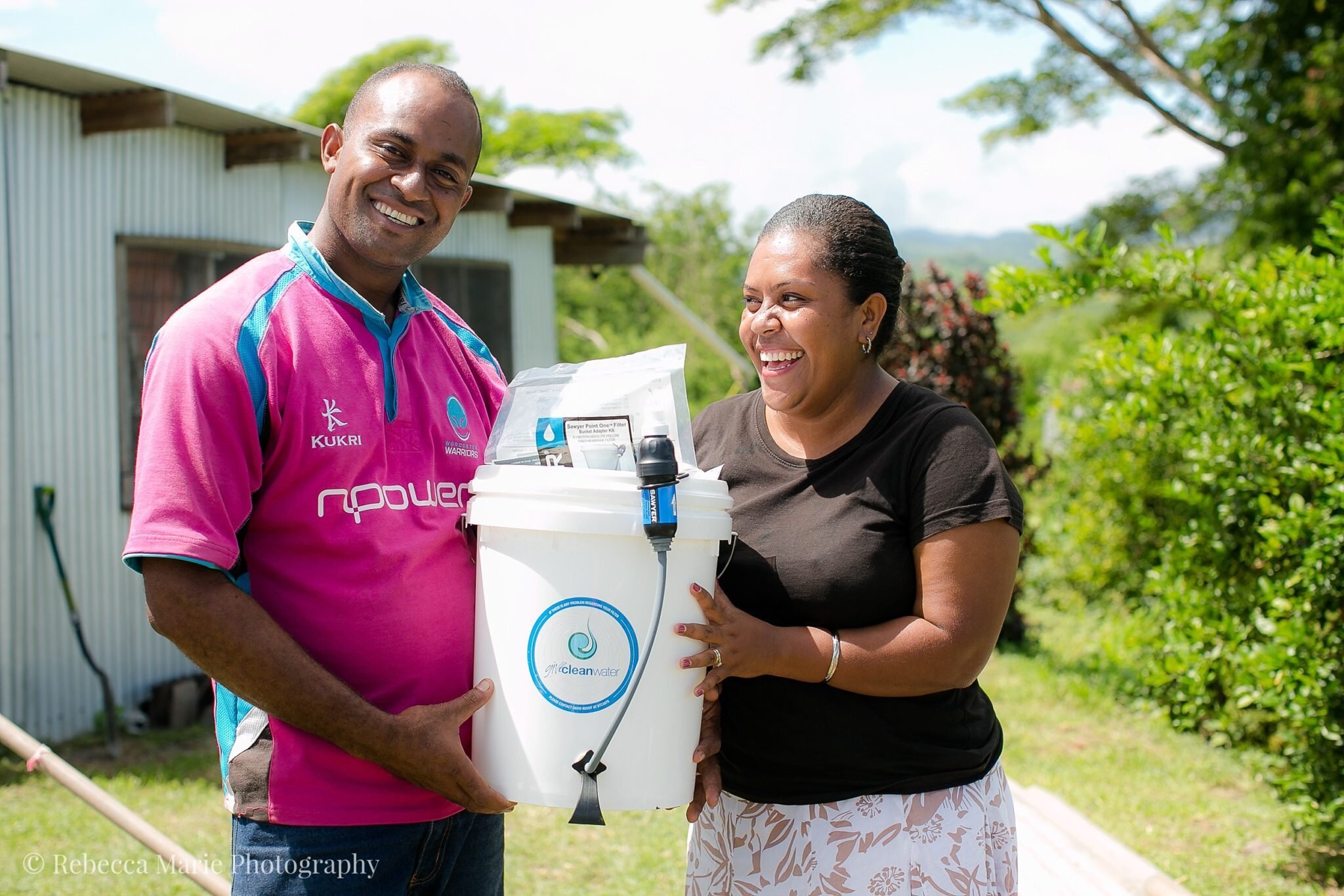
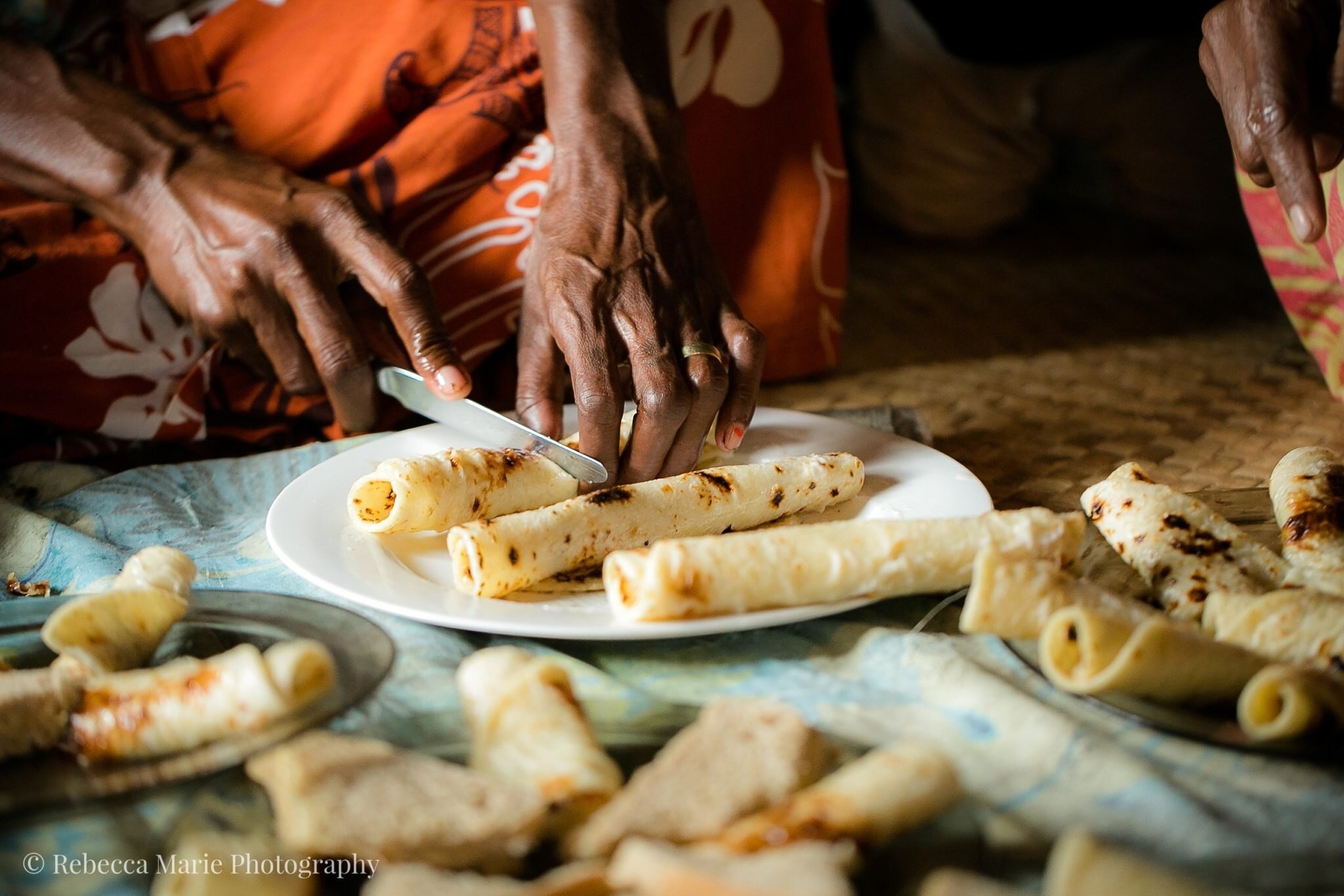
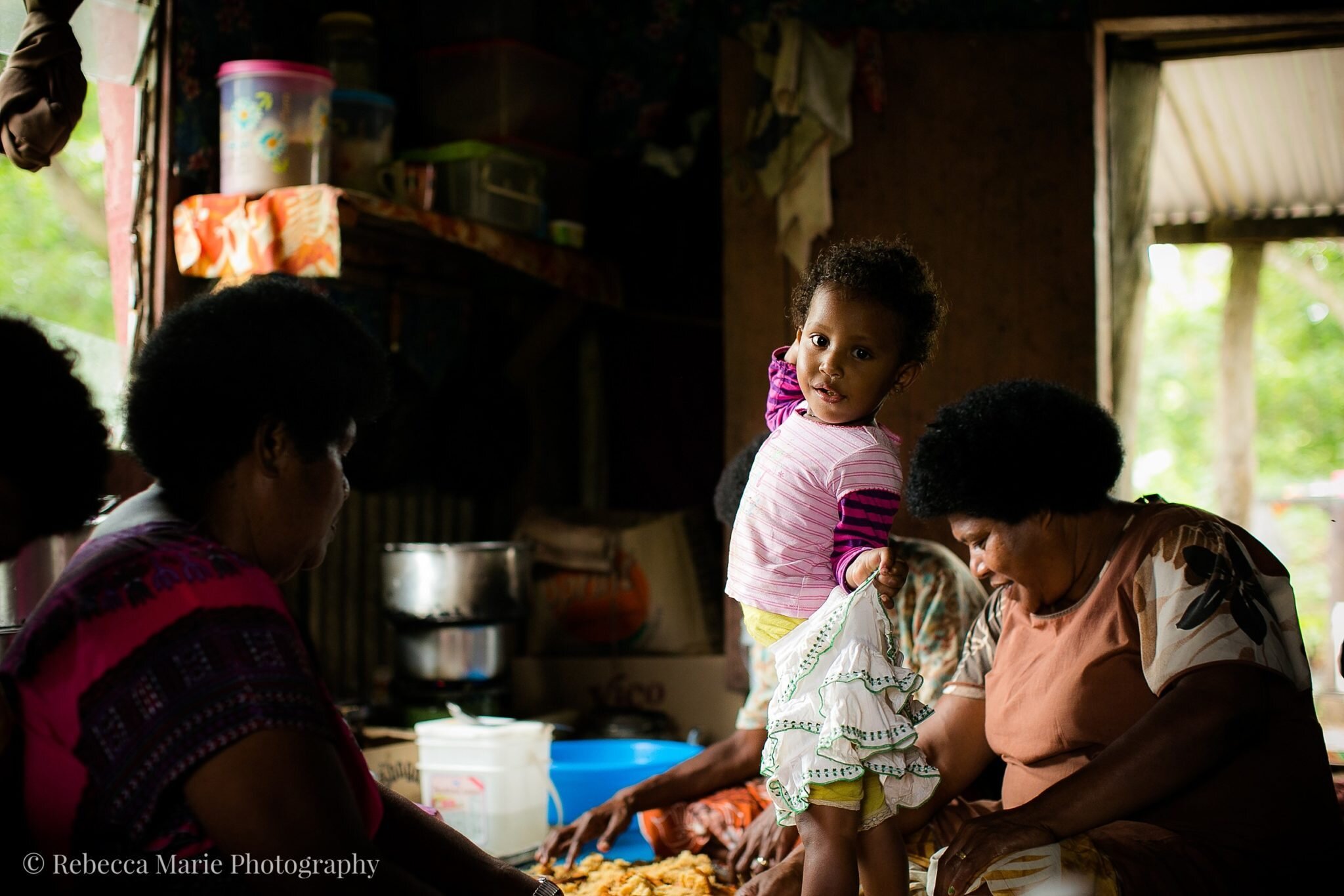
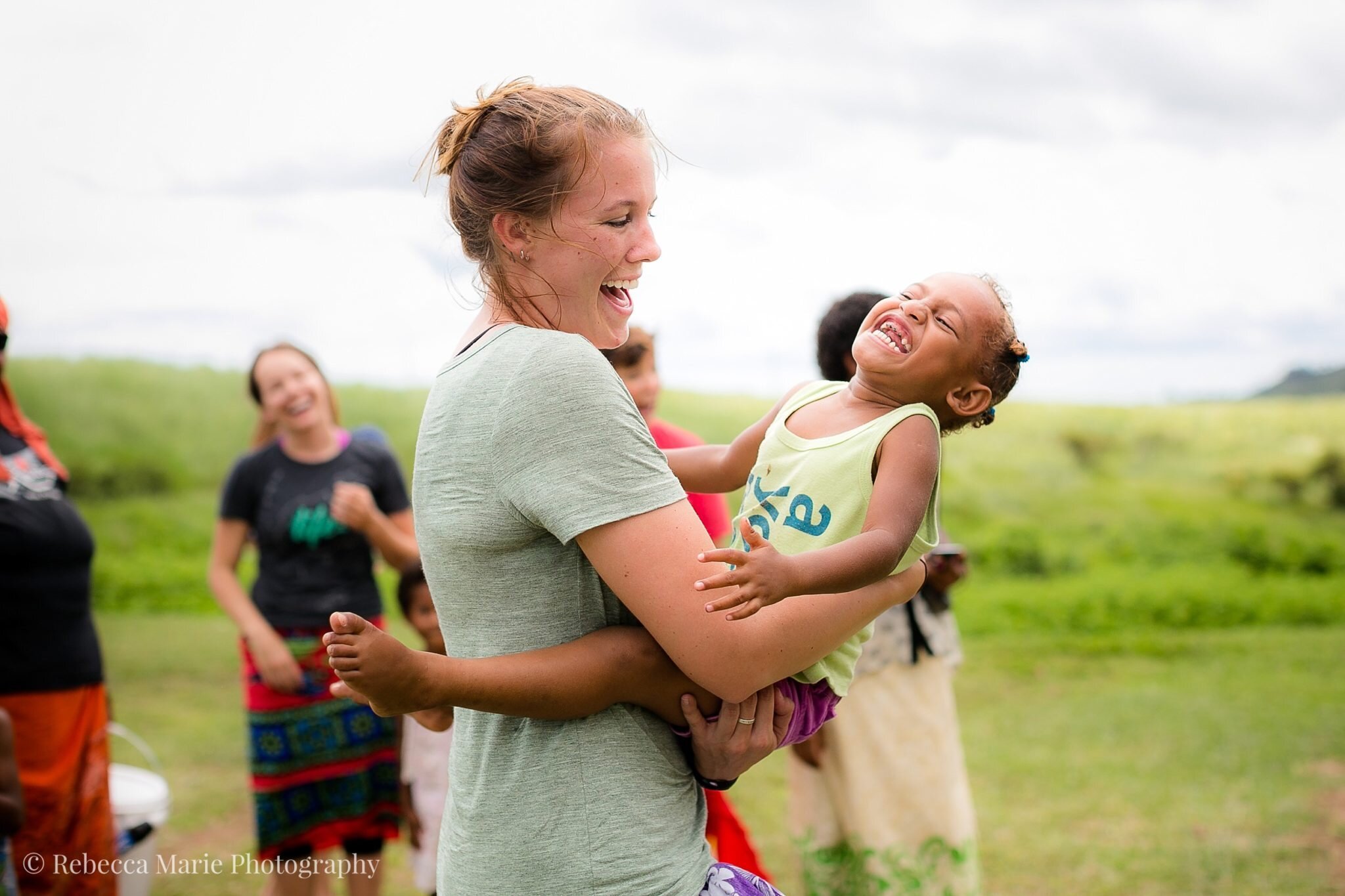
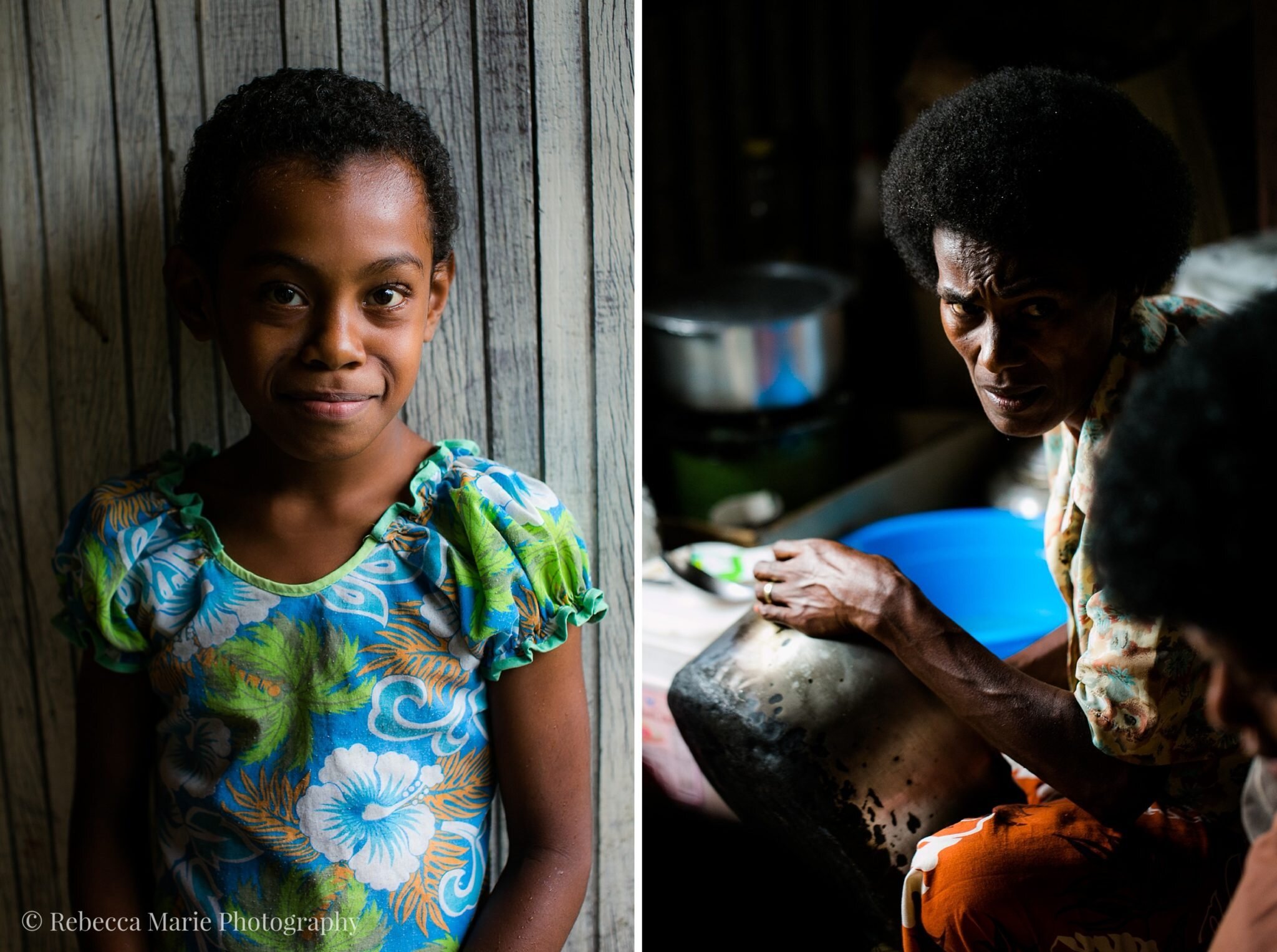
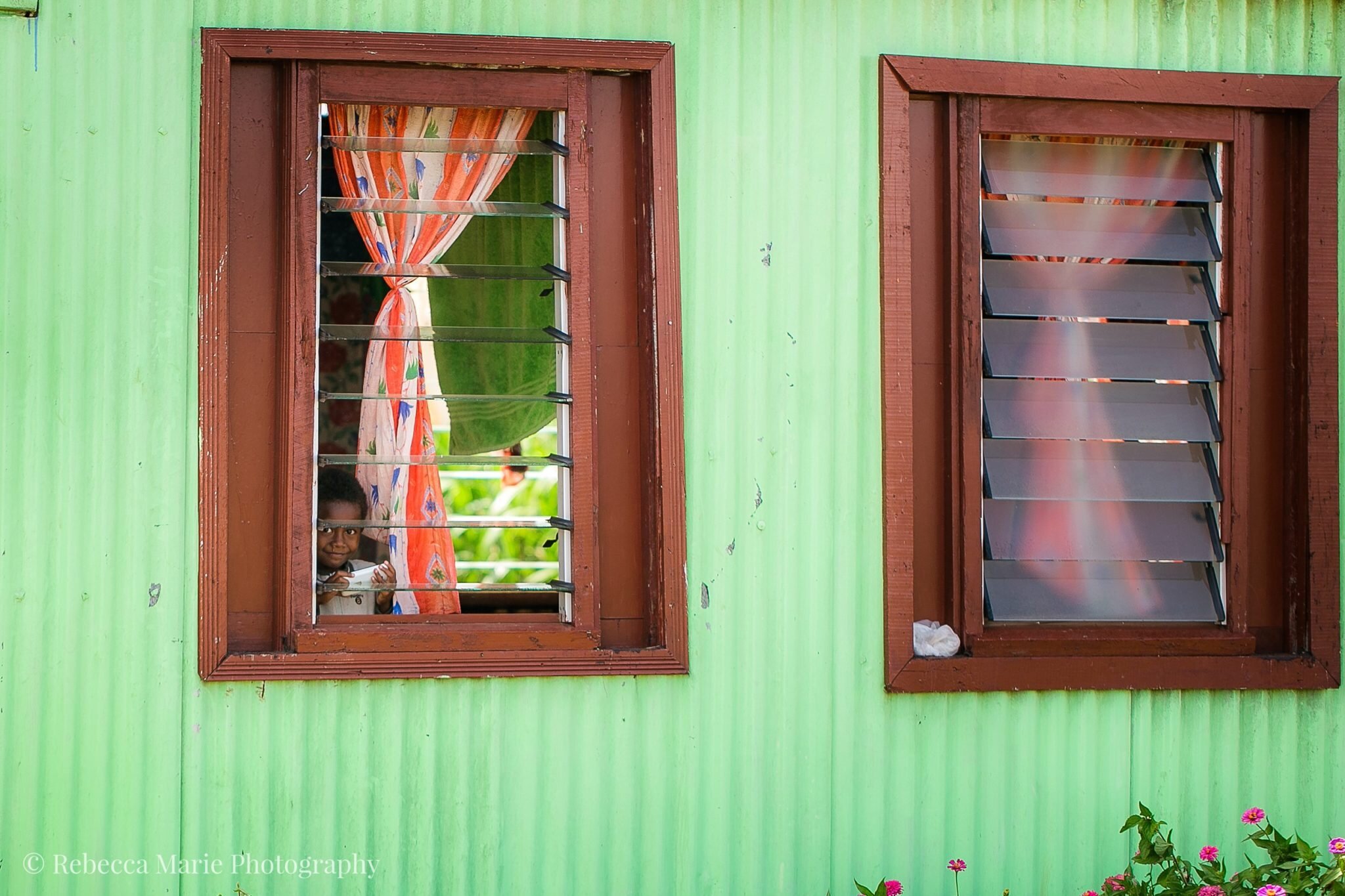 There were a lot of photos I could have taken that may have accurately described the dirt you felt on little one's clothes as they leapt in for a hug. There were ways I could have framed a photo of a family's home that would have showcased how different it was from the home I grew up in. All of that would have been true and so very journalistic, but to me, it wouldn't have been accurate. Accurate was capturing the spirit of the people who welcomed a group of 10 strangers into their homes with open arms. Accurate is showcasing the Kava ceremonies typically reserved for special occasions that we were a part of numerous times because the 10 of us with our buckets and Sawyer filters were a special occasion.Accurate to me is a feeling. If I have to wait a split second to push that shutter button down because you've gone from concerned to laughing, I'll wait. What's more important to me than the strict code of photojournalism ethics is to capture what it felt like to be there. I can honor the amazing people of Fiji who welcomed us by accurately portraying who they are as individuals. That is drastically different than the accuracy of life's realities that they happened to be given.
There were a lot of photos I could have taken that may have accurately described the dirt you felt on little one's clothes as they leapt in for a hug. There were ways I could have framed a photo of a family's home that would have showcased how different it was from the home I grew up in. All of that would have been true and so very journalistic, but to me, it wouldn't have been accurate. Accurate was capturing the spirit of the people who welcomed a group of 10 strangers into their homes with open arms. Accurate is showcasing the Kava ceremonies typically reserved for special occasions that we were a part of numerous times because the 10 of us with our buckets and Sawyer filters were a special occasion.Accurate to me is a feeling. If I have to wait a split second to push that shutter button down because you've gone from concerned to laughing, I'll wait. What's more important to me than the strict code of photojournalism ethics is to capture what it felt like to be there. I can honor the amazing people of Fiji who welcomed us by accurately portraying who they are as individuals. That is drastically different than the accuracy of life's realities that they happened to be given.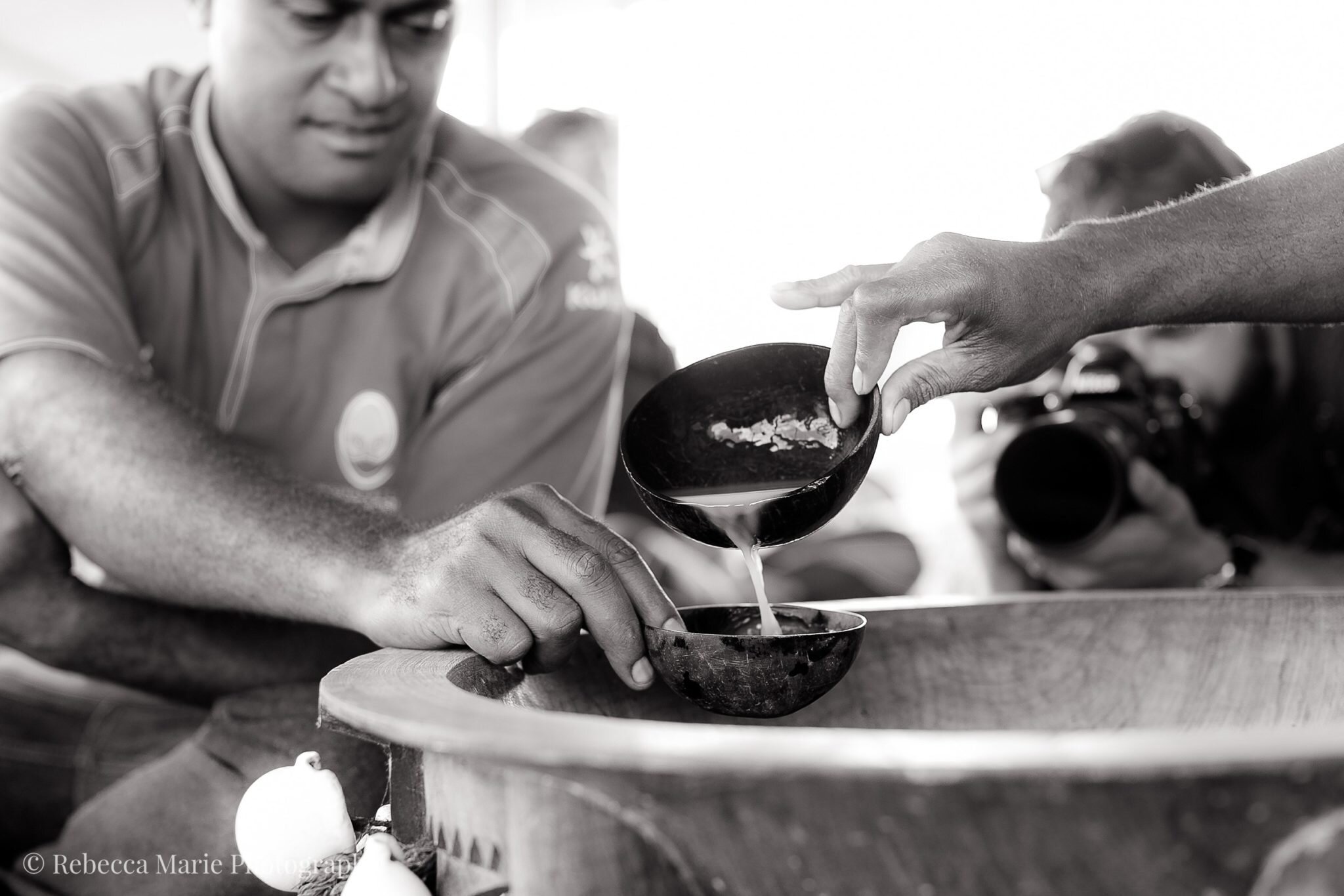
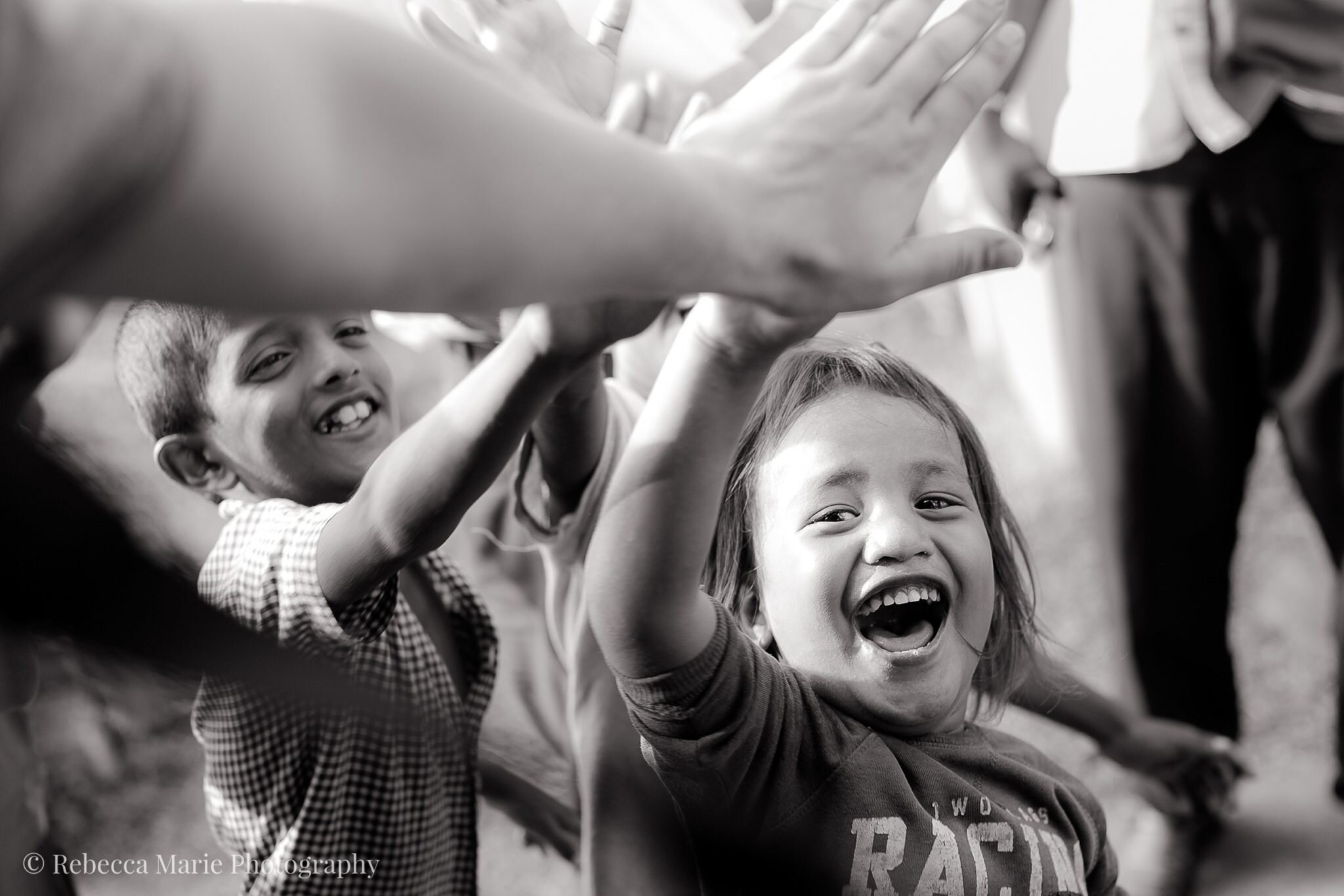
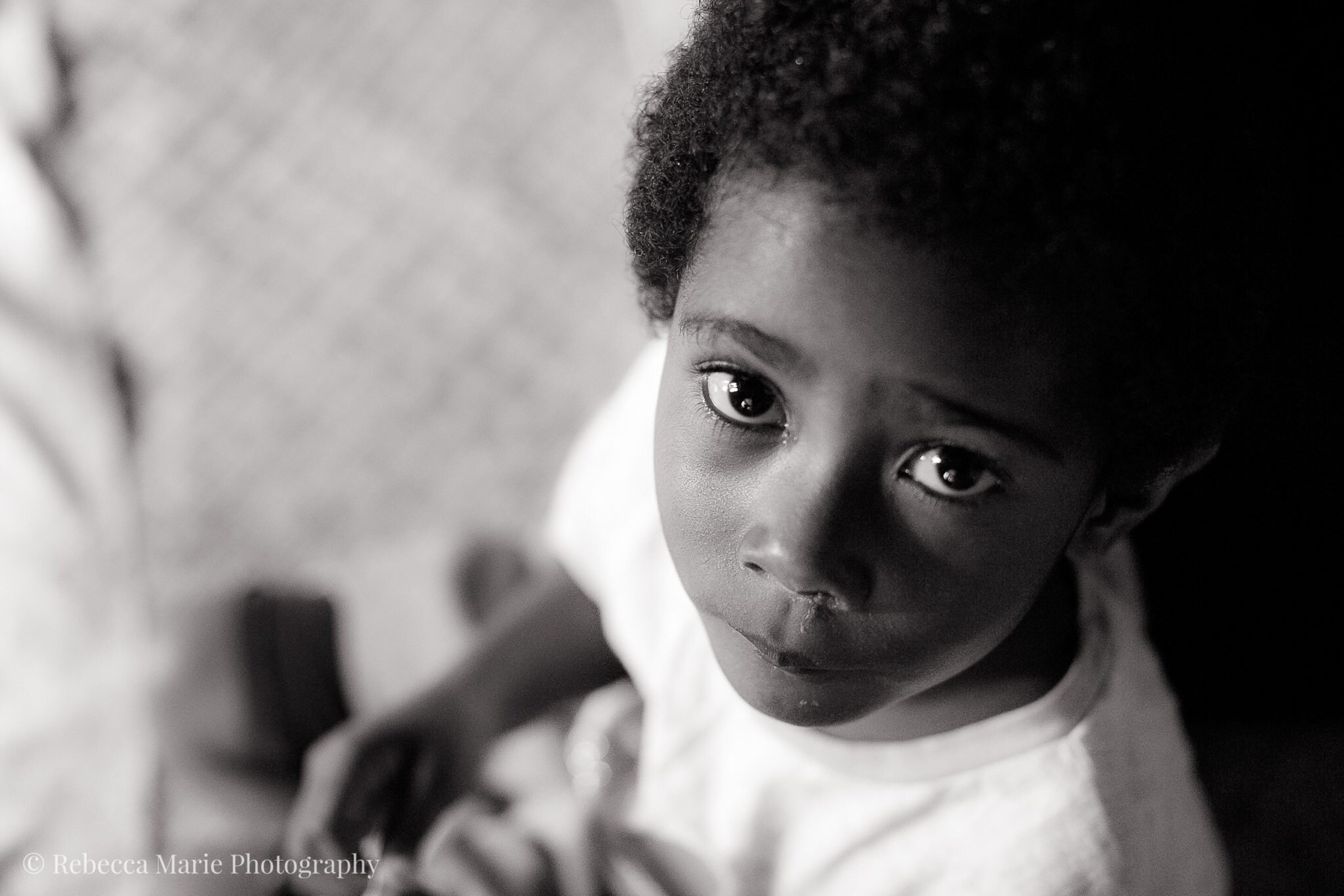
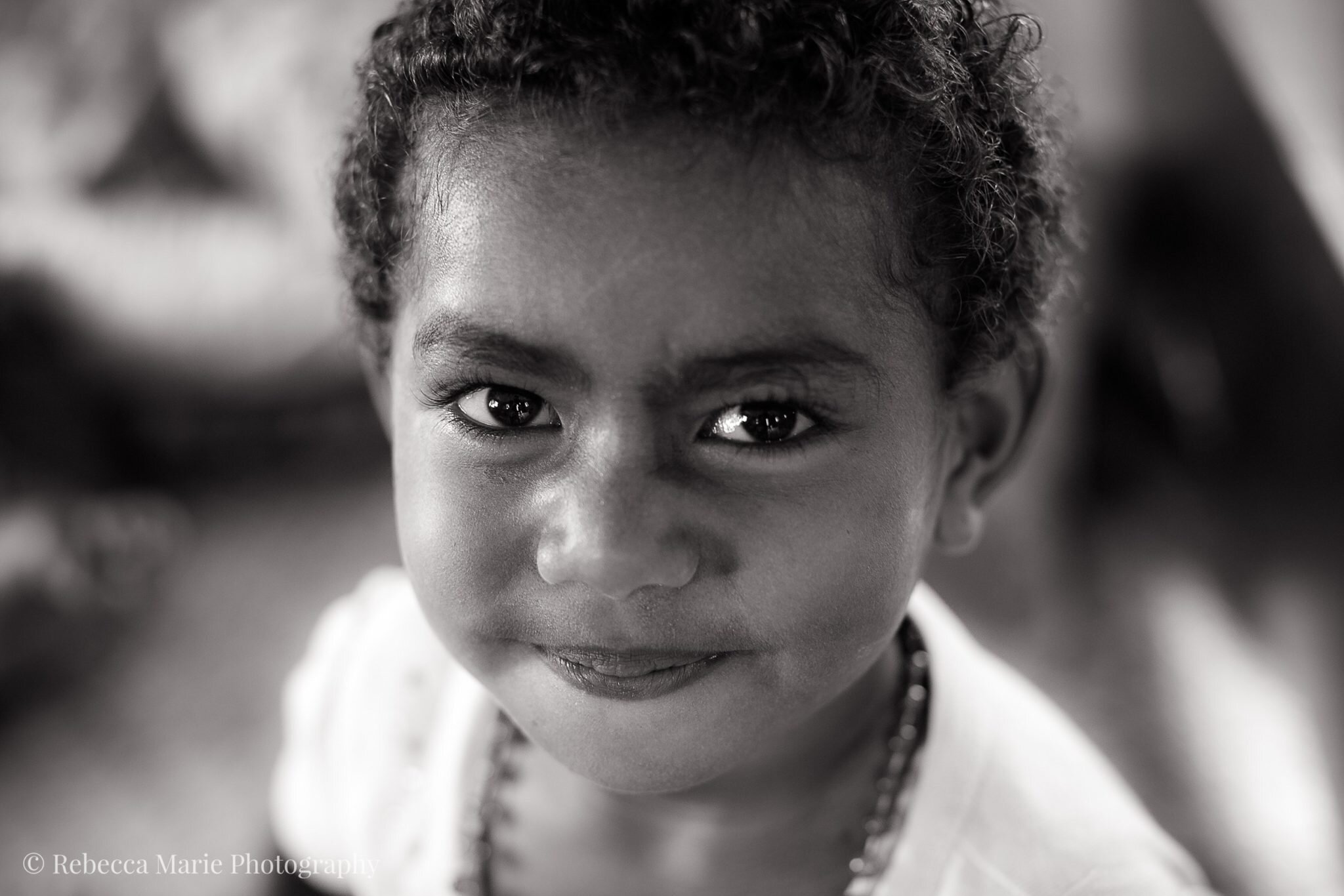
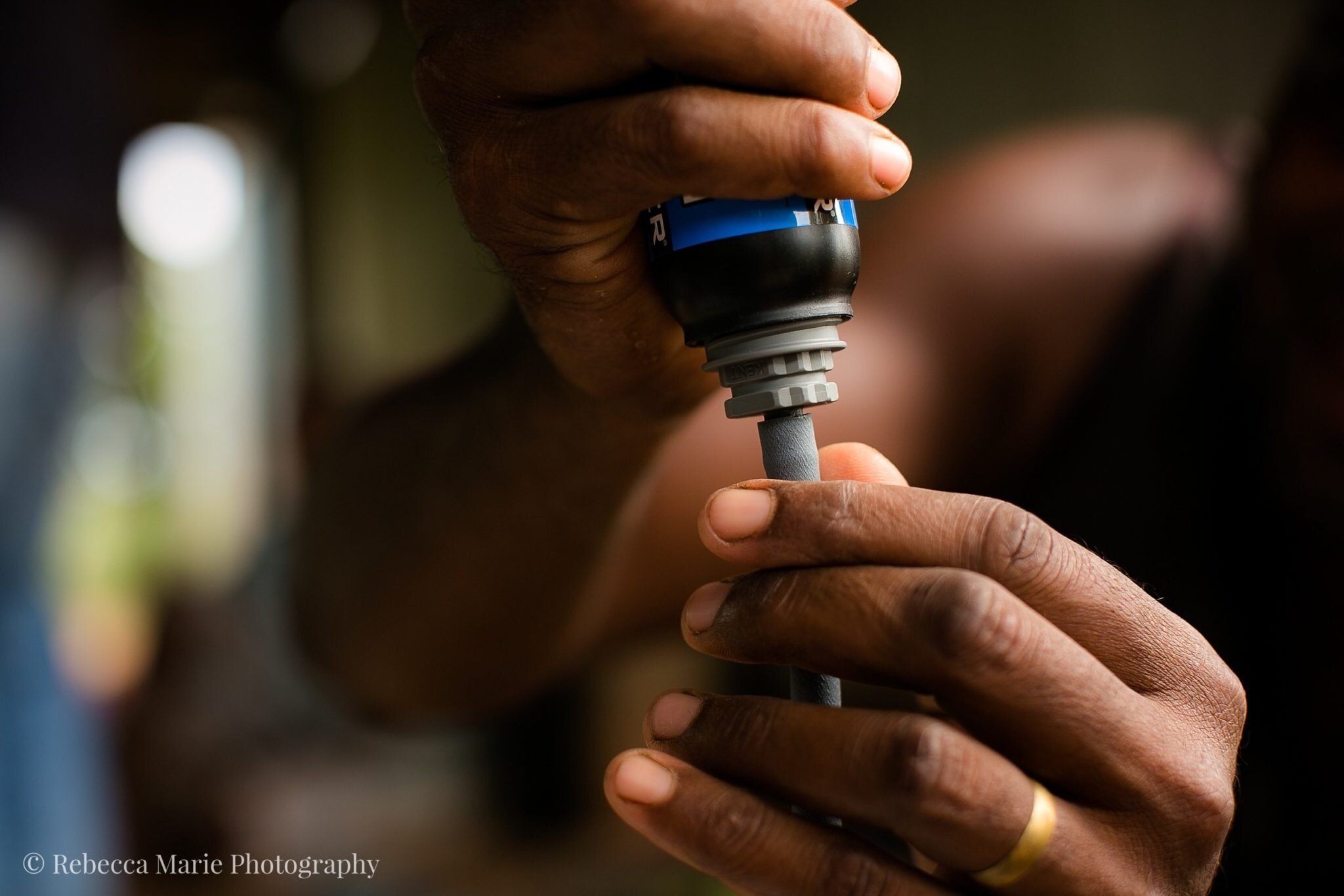
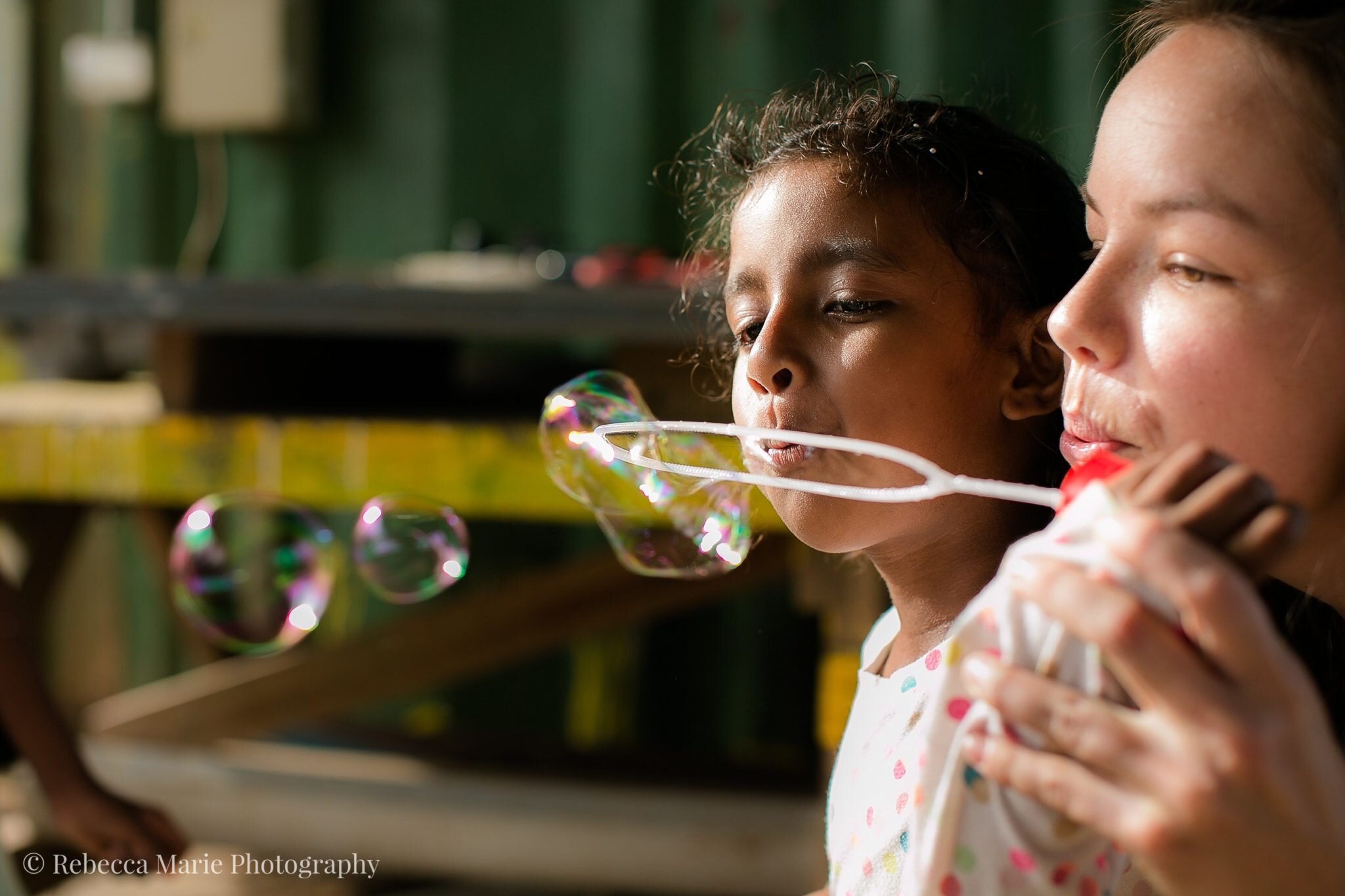
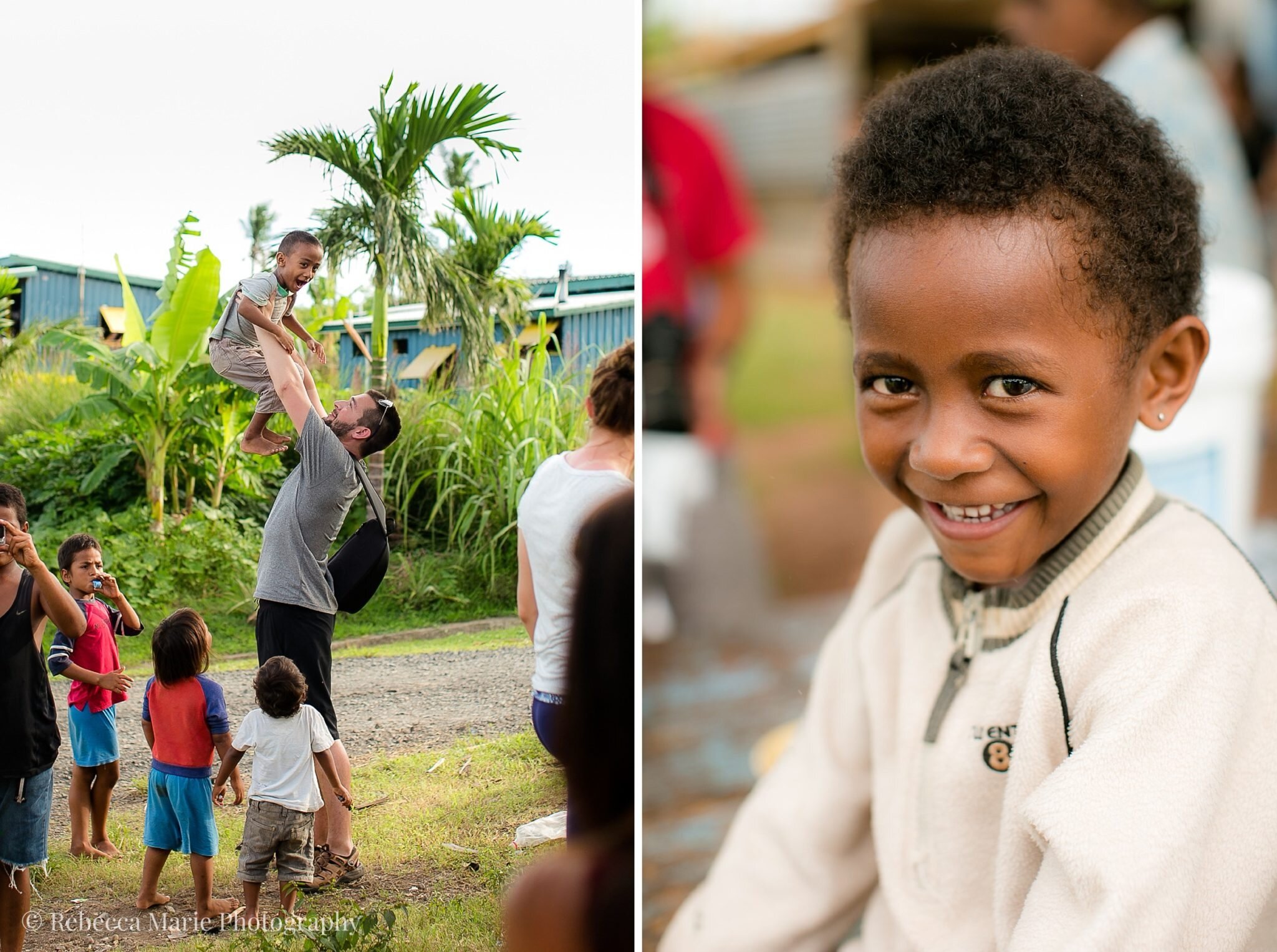
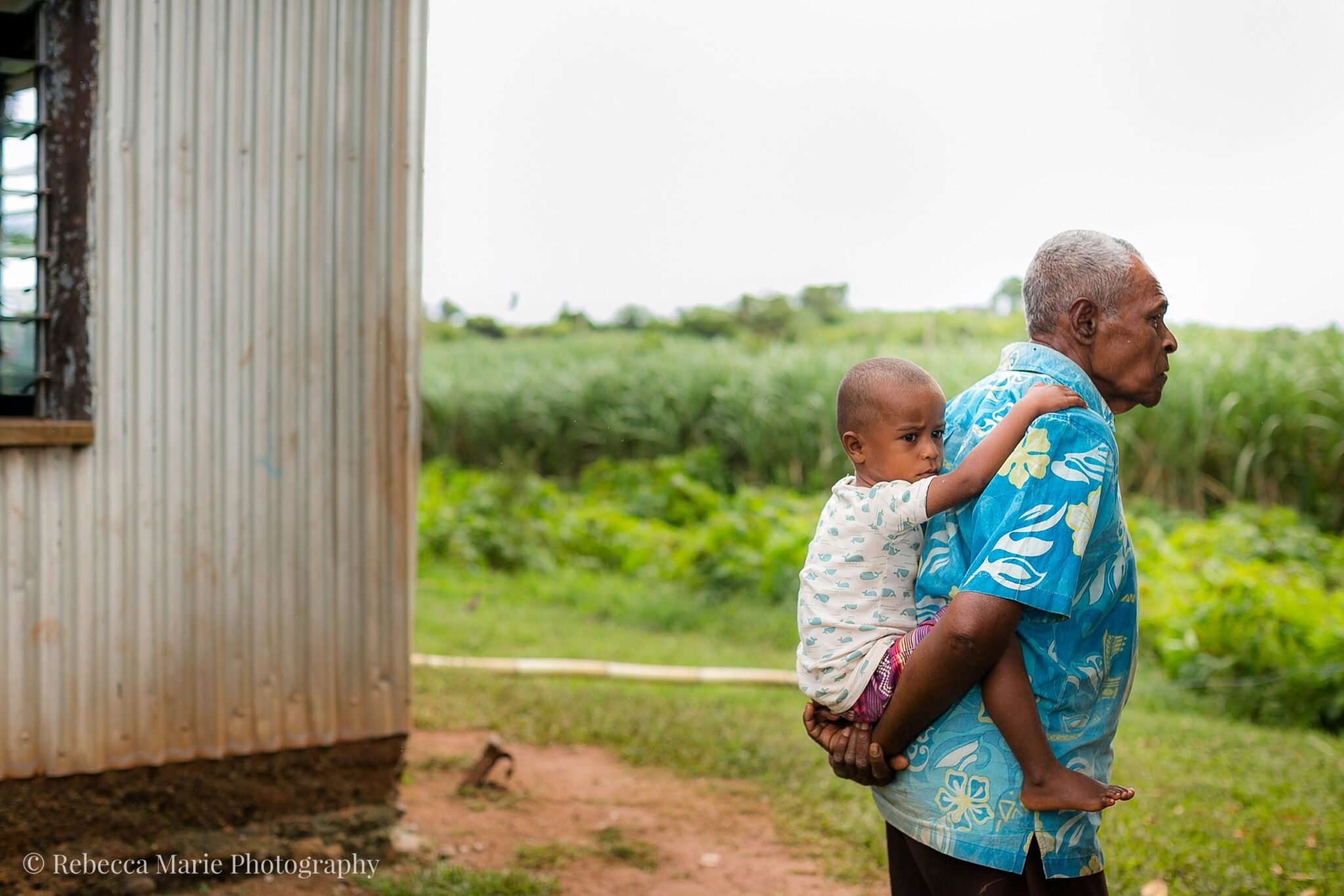
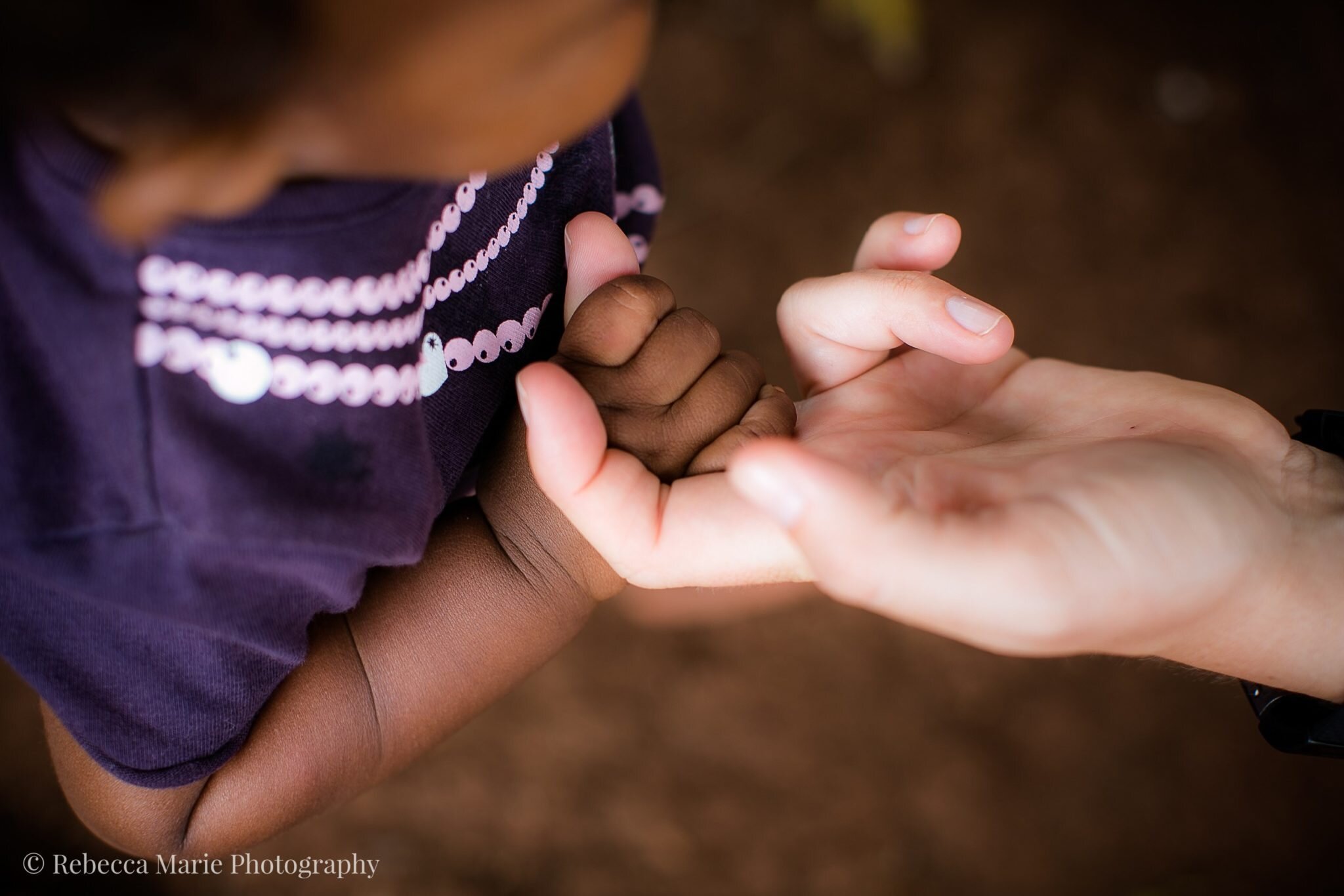 The catch is, whether documenting families in Fiji receiving water filters or families celebrating a momentous occasion as a wedding, accurate is only possible if you get to know the people first. Our responsibility as photographers is to honor another person's story by learning it first. You can't dive in thinking you know already just because someone hired you to take some pictures. Have a conversation, learn their names, learn the family history. How did they come to live on this gorgeous hilltop with views for days (even if there is no access to clean water)? Why did you decide to get married in Chicago even though you live in Seattle? Picking red roses for a bridal bouquet because your mom planted rose bushes underneath your childhood bedroom is a very different reason for that choice than because it's the traditional Valentine's Day flower. And if I know the reason, you can bet it's going to change how I document those roses. If I don't ask first, how the heck am I supposed to know when to push the shutter button in order to" be accurate and comprehensive in the representation of [my] subjects?"While the medium of photography may lend itself to feeling more "real" than impressionists' paintings, that doesn't make it truth. We have the power to choose how something is captured (or not) and with that comes a great responsibility. One that must be considered in collaboration with those being photographed. After all, if I don't ask then I'm left only with my knowledge of what I personally think is beautiful. And if these are your family photos or your memories happening on the other side of my camera, who the heck cares what I think is beautiful if it doesn't feel right to you?Perhaps I didn't accurately document the water crisis in Fiji. But I feel pretty darn confident that I did accurately capture the spirits of the 70 amazing families our team had the honor of meeting. If you want to hear more about our recent trip with Photoserve, we just wrapped up #Fiji week over on Instagram. Be sure to check it out here and don't forget to follow @rebeccamarieart to stay up to date with all the newest work!
The catch is, whether documenting families in Fiji receiving water filters or families celebrating a momentous occasion as a wedding, accurate is only possible if you get to know the people first. Our responsibility as photographers is to honor another person's story by learning it first. You can't dive in thinking you know already just because someone hired you to take some pictures. Have a conversation, learn their names, learn the family history. How did they come to live on this gorgeous hilltop with views for days (even if there is no access to clean water)? Why did you decide to get married in Chicago even though you live in Seattle? Picking red roses for a bridal bouquet because your mom planted rose bushes underneath your childhood bedroom is a very different reason for that choice than because it's the traditional Valentine's Day flower. And if I know the reason, you can bet it's going to change how I document those roses. If I don't ask first, how the heck am I supposed to know when to push the shutter button in order to" be accurate and comprehensive in the representation of [my] subjects?"While the medium of photography may lend itself to feeling more "real" than impressionists' paintings, that doesn't make it truth. We have the power to choose how something is captured (or not) and with that comes a great responsibility. One that must be considered in collaboration with those being photographed. After all, if I don't ask then I'm left only with my knowledge of what I personally think is beautiful. And if these are your family photos or your memories happening on the other side of my camera, who the heck cares what I think is beautiful if it doesn't feel right to you?Perhaps I didn't accurately document the water crisis in Fiji. But I feel pretty darn confident that I did accurately capture the spirits of the 70 amazing families our team had the honor of meeting. If you want to hear more about our recent trip with Photoserve, we just wrapped up #Fiji week over on Instagram. Be sure to check it out here and don't forget to follow @rebeccamarieart to stay up to date with all the newest work!
